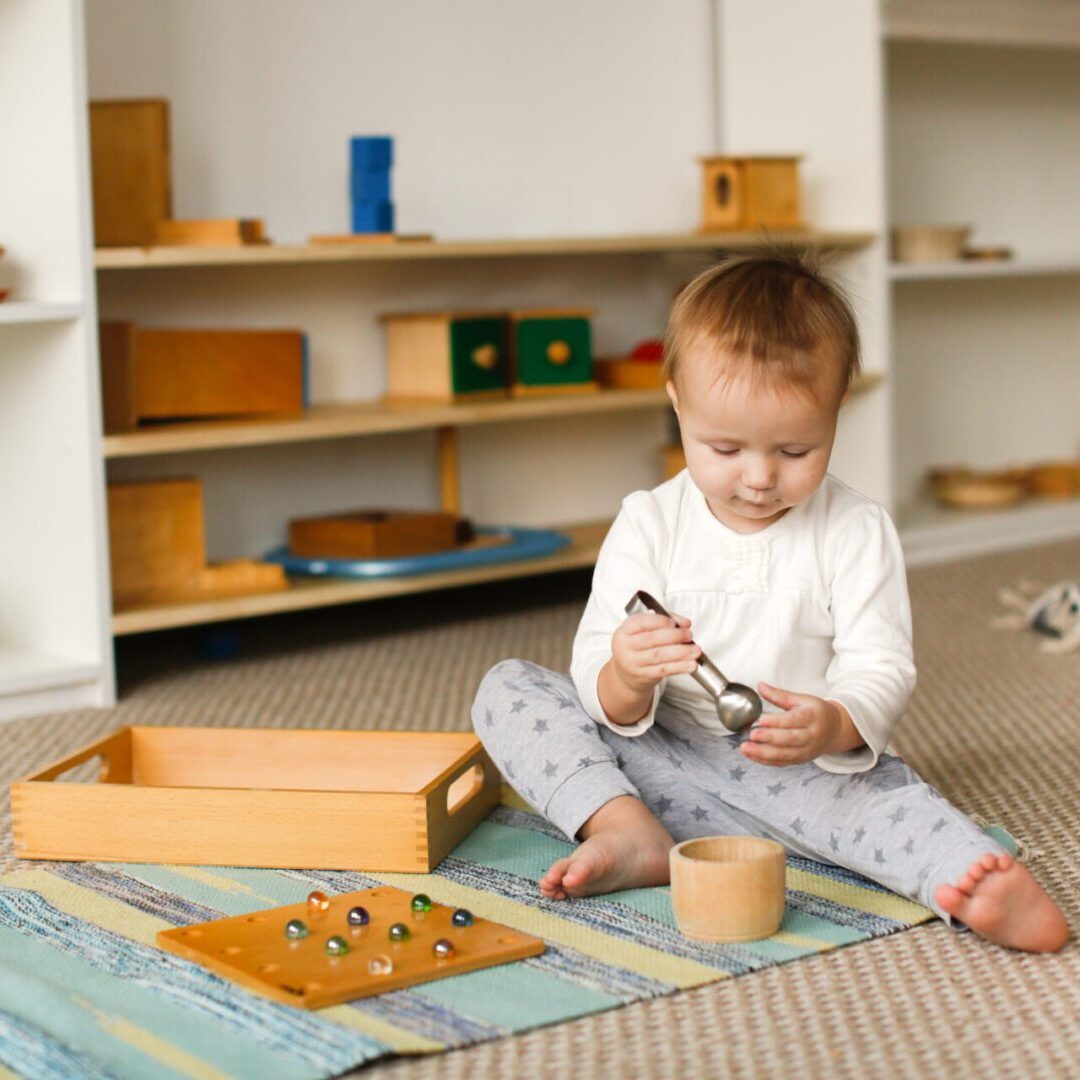Infant

Ratio – 3:1
Class Size – 6 to 9
6 weeks to 16 months
Year-Round Schedules:
School Day – 8:30 a.m. – 3 p.m.
Full Day – 8 a.m. – 5 p.m.
All Day – 7 a.m. – 6 p.m.
Some Infant schedules are offered 3 days a week.
Infants need not only love, emotional nurturing, and a healthy physical environment, but also an environment which promotes their very real need to learn. The Montessori Method provides a basis for individualized learning activities, appropriate for even the earliest stages of a child’s development. Giving the infant time, attention, and respect is the foundation of the Montessori philosophy. During the early years of life, Dr. Maria Montessori felt that “the first thing the child’s education demands is the provision of an environment in which he or she can develop the powers given by nature”.
Children in this program will flourish in a prepared environment that respects, supports and responds to their basic needs for independence, exploration, and the building of trust. The goal is the “authentic child”- one who feels secure, autonomous, and competent.
The structure of the curriculum is based on five developmental areas: Sensory and Perceptual, Physical and Motor, Self-help Skills, Language, Social and Emotional. Dr. Maria Montessori emphasized the need for a rich, structured, and familiar environment within which the needs of individual children are met.
Sensory and Perception
The young child absorbs the world around him through the five senses and a rich environment should cater to all senses.
Physical and Motor
Children are born with an innate desire to move and master control of their bodies; it requires no instruction from caregivers. By providing developmentally appropriate movement opportunities and maintaining a safe environment, motor development is allowed to unfold naturally and at the child’s own pace.
Self-Help Skills
The focus is on helping the child enjoy independence; independence is guided by respect for the infant’s competence. Caregivers are sensitive observers – available when direct help is needed, but not intrusive when help is not needed. The infant is encouraged and allowed to problem solve and to reach the goal himself, instead of having this opportunity taken away from him by the well-meaning adult.
Language
The construction of vocabulary is a part of every aspect of the classroom; the infant hears language spoken by his teachers all day. The infant brain is wired to learn language effortlessly. Maria Montessori referred to this as a child having a window of opportunity to easily “absorb” language or multiple languages from birth though six years of age.
Social and Emotional
A well rounded and happy child, whose balanced development and happiness have been supported by responsive individual attention, reacts positively with the environment, copes with frustration, and learns easily. Caregivers reinforce the infant’s self-initiated activities by paying full attention, while being quietly available. This results in the caregiver appreciating and enjoying what the infants actually do. Gentle validations are used to encourage. A predictable balance of togetherness and separateness is achieved, which benefits both the infants and the adults.
